About OOPSLE
The OOPSLE workshop is a discussion-oriented and collaborative forum for formulating and addressing with open, unsolved and unsolvable problems in software language engineering.
“Software languages” comprise all kinds of artificial languages used in software development: for programming, markup, pretty-printing, modelling, data description, formal specification, evolution, etc. Software language engineering is a relatively new research domain of systematic, disciplined and measurable approaches of development, evolution and maintenance of such languages.
Please study the list of topics below or read the call for papers (TXT) or the workshop description (PDF) for more information.
Relevant topics
We acknowledge the following list as non-exhaustive collection of examples of topics of interests of the workshop:- Defining an unsolved problem by establishing both its provenance in prior research and the lack of a fully satisfactory solution.
- Identifying new problem areas in software language engineering that have not been previously studied due to lack of understanding, techniques, practical interest or scalability issues.
- Engaging in technological space travel by identifying similar problems in various sectors of software language engineering (i.e., grammarware, modelware, ontoware, XMLware, databases, spreadsheets, etc).
- Generalising and reformulating of several well-known problems into several sides of one open challenge (e.g., parsing and pretty-printing).
- Proposing systematic methods of assessment and comparison of existing and emerging solutions to a problem that is not or cannot be fully solved (e.g., choosing between parsing techniques, metaprogramming methodologies, software language workbenches).
- Arguing about definitions of terms commonly used in various senses (e.g., software language design, quality of a grammar, transformation).
- Presenting unconventional crossovers of popular research topics and software language engineering concerns (e.g., green IDEs and energy consumption considerations for parsing algorithms).
- Making an overview of major hindrances hindering solution of a standing problem (e.g., tool interoperability and reuse, tackling language and metalanguage diversity and versatility, consistency management).
- Designing open datasets in the software language engineering domain and the way we could share and incorporate them.
- Describing novel or unconventional ideas that are promising but are not yet fully validated, or where validation itself may be a challenge.
- Revealing solid negative results, failed experiments and disproven hypotheses.
- Constructing future community experiments and considering topics our community expects to see addressed by such a competition, if one decides to run it in the future.
- Critically reassessing a problem that is widely assumed to be solved but the solution is either underwhelming or could be “considered harmful” (model-driven engineering, domain-specific languages, test-based development).
Call for Position Papers
You are invited to submit a position paper up to 4 pages in length, sketching an open or original problem, idea or challenge. Submissions are screened by the workshop chairs, who will select papers based on potential for discussion and interest to the community, as well as the clarity of presentation and motivation.
OOPSLE is not a mini-conference, and therefore it is not necessary for the work to be conclusive yet. The papers will be posted online prior to the workshop, so the participants have the opportunity to read them in advance.
Papers should be formatted according to the EC-EASST style and submitted electronically via EasyChair. The cover page is automatically produced and does not count towards the page limit.
Each accepted paper is presented at the workshop as a brief summary of its main idea and a set of open questions to be discussed with the audience. Presenters will ask for input on how to proceed with experiments, validation or refinement of their ideas, collect opinions on the presented definitions, share similar experience. We expect the participants to be friendly but inquisitive, and ask hard questions back that may lead to deepening the initially presented insights. The workshop is planned to have short presentations and long discussions to stimulate direct collaboration afterwards.
Programme
First session: a keynote by Prof. Dr. Ralf Lämmel (Universität Koblenz-Landau), titled “An Annotated and Illustrated Bibliography on Software Language Engineering”.
Second session: an open discussion steered by Dr. Vadim Zaytsev (CWI) and Dr. Anya Helene Bagge (University of Bergen).
Third session: an industry-driven discussion steered by Dr. Darius Blasland (Raincode, PhiDaNi Software) titled “The Triumph of Experience over Optimism: The Past’s Statistical Relevance”.
People
Workshop chairs:
- Anya Helene Bagge, University of Bergen, Norway
- Vadim Zaytsev, CWI, Amsterdam, The Netherlands
